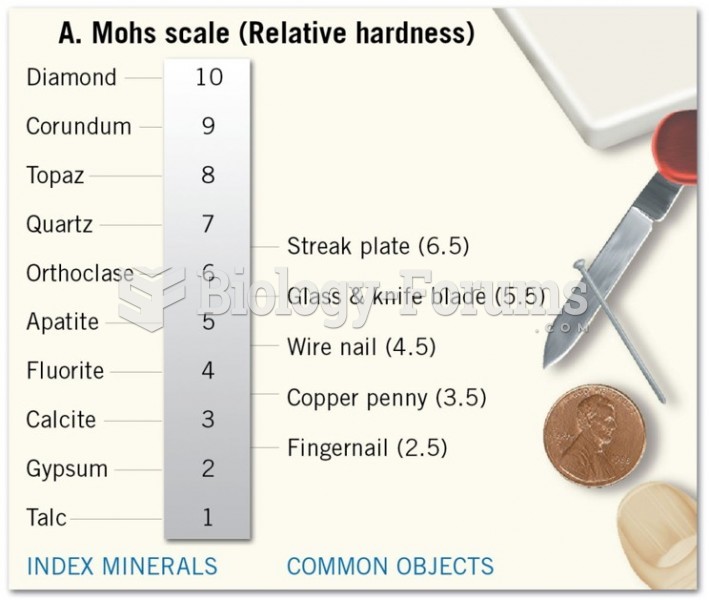|
|
|
In most climates, 8 to 10 glasses of water per day is recommended for adults. The best indicator for adequate fluid intake is frequent, clear urination.
The shortest mature adult human of whom there is independent evidence was Gul Mohammed in India. In 1990, he was measured in New Delhi and stood 22.5 inches tall.
Glaucoma is a leading cause of blindness. As of yet, there is no cure. Everyone is at risk, and there may be no warning signs. It is six to eight times more common in African Americans than in whites. The best and most effective way to detect glaucoma is to receive a dilated eye examination.
More than 2,500 barbiturates have been synthesized. At the height of their popularity, about 50 were marketed for human use.
According to animal studies, the typical American diet is damaging to the liver and may result in allergies, low energy, digestive problems, and a lack of ability to detoxify harmful substances.
 The geomagnetic polarity time scale shows how Earth’s magnetic pole has changed through geologic tim
The geomagnetic polarity time scale shows how Earth’s magnetic pole has changed through geologic tim
 On March 25, 1911, as scores of young factory girls leaped to their deaths from the eighth, ninth, a
On March 25, 1911, as scores of young factory girls leaped to their deaths from the eighth, ninth, a





